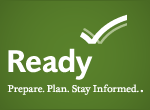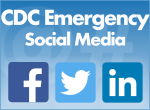Asking Instead of Answering

One-way communication is not engaging. Although telling is easy, asking and listening lead to more effective conversations. As communicators, we can guide people affected by a crisis to adopt positive public health actions that work for them through self-discovery.
Asking questions is a deliberate action. These active exchanges create awareness for communicators and communities, exposing explicit information needs. The key is to help your audience identify its own insight.
- Ask the right questions.
- Receive feedback.
- Offer the right information.
A community that comes up with its own solution will often take ownership of that idea. Crisis communicators can help by asking leading questions that make the right connections. Allowing people to persuade themselves is not an easy process. Done poorly, it can seem condescending or manipulative. It takes practice and empathy, but it is worth the effort and is the most effective way to gain a community’s acceptance in thought and behavior.
For more resources and information on CERC, please see Crisis and Emergency Risk Communication, 2014 Edition or Crisis and Emergency Risk Communication Pandemic Influenza, 2007.
Have you used CERC in your work? To share your CERC stories, e-mail cercrequest@cdc.gov. Your stories may appear in future CERC Corners.
- Page last reviewed: March 24, 2017
- Page last updated: March 24, 2017
- Content source:
- Maintained By:





 ShareCompartir
ShareCompartir